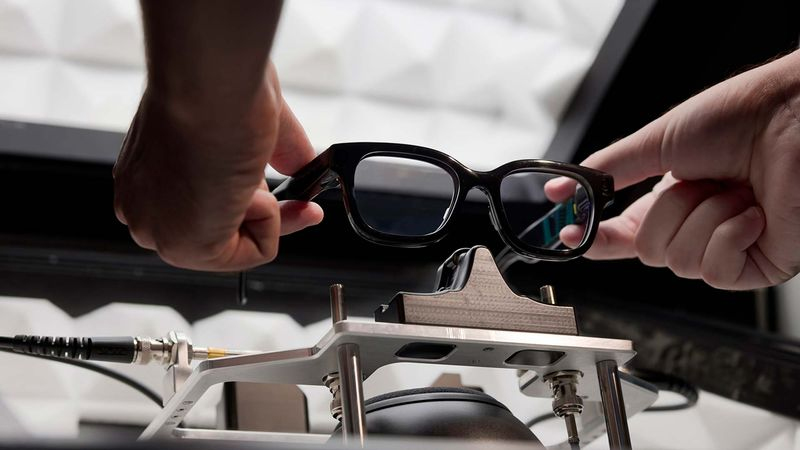Google and Magic Leap combine to take on Meta Ray-Ban's AR glasses with enhanced smart glass tech
Future tech showcased, but might not be far off


Quick Summary
Google and Magic Leap have shown off prototype AI smartglasses with a slim build and near-invisible display.
The glasses pave the way for Google-powered rivals to Meta's Ray-Ban Display glasses that use similar tech.
Smart glasses have leapt into the public consciousness over the past couple of years, mainly fuelled by Ray-Ban Meta, but now with added impetus thanks to Google's Android XR plans.
Most recently that gave us the Samsung Galaxy XR, but in the world of smart glasses, Google's partnership with Magic Leap has now given us a prototype too.
Magic Leap is a familiar name, best known for creating a lot of hype around holographic objects in the early years, but now working on something called waveguide optics.
This is how its partnership with Google comes together in AR glasses, with Google developing the software experiences and AI – and using its Raxium microLED light engine as the source – and Magic Leap focused on bringing that image to life in a comfortable way.
“What makes this prototype stand out is how natural it feels to look through,” commented Shahram Izadi, VP of Google XR. That comes down to Magic Leap's involvement – and sets up these smart glasses as a natural rival to the Meta Ray-Ban Display pair that were recently launched in the US. Those also have a discreet display formed by waveguides.
In a press release, Magic Leap outlines that it's working with more partners than just Google, so that "natural" feel is likely to be something we see from other brands too and there's no indicator that what we see here is anything other than a prototype.
The new "AI glasses" were shown off at FII 9 (Future Investment Initiative), which just took place in Riyadh, Saudi Arabia, and a little like the unveiling of the Samsung tri-fold phone recently, this isn't a consumer release. It's just showing off the tech at this stage.
Get all the latest news, reviews, deals and buying guides on gorgeous tech, home and active products from the T3 experts
"Magic Leap’s precision in optics and waveguide design gives the display a level of clarity and stability that’s rare in AR today," said Izadi, high praise for the performance of the new AI glasses.
As well as showing off this prototype, which can blend real and virtual information, Magic Leap and Google have confirmed a three-year extension to their collaboration agreement, with Magic Leap describing itself as an "AR ecosystem partner".

While little else is said about the experience or the hardware involved, it's possible to glimpse the display on the glass during the presentation. This happens when it catches the light [as seen above]. Otherwise, the glasses look like fairly standard heavy-frame glasses.
We'll have to wait and see where this heads, but we know that Samsung and Google are working a consumer release for AI glasses, while Gentle Monster and Warby Parker were confirmed as partners off the back of Google I/O earlier in the year.

Chris has been writing about consumer tech for over 15 years. Formerly the Editor-in-Chief of Pocket-lint, he's covered just about every product launched, witnessed the birth of Android, the evolution of 5G, and the drive towards electric cars. You name it and Chris has written about it, driven it or reviewed it. Now working as a freelance technology expert, Chris' experience sees him covering all aspects of smartphones, smart homes and anything else connected. Chris has been published in titles as diverse as Computer Active and Autocar, and regularly appears on BBC News, BBC Radio, Sky, Monocle and Times Radio. He was once even on The Apprentice... but we don't talk about that.
You must confirm your public display name before commenting
Please logout and then login again, you will then be prompted to enter your display name.
